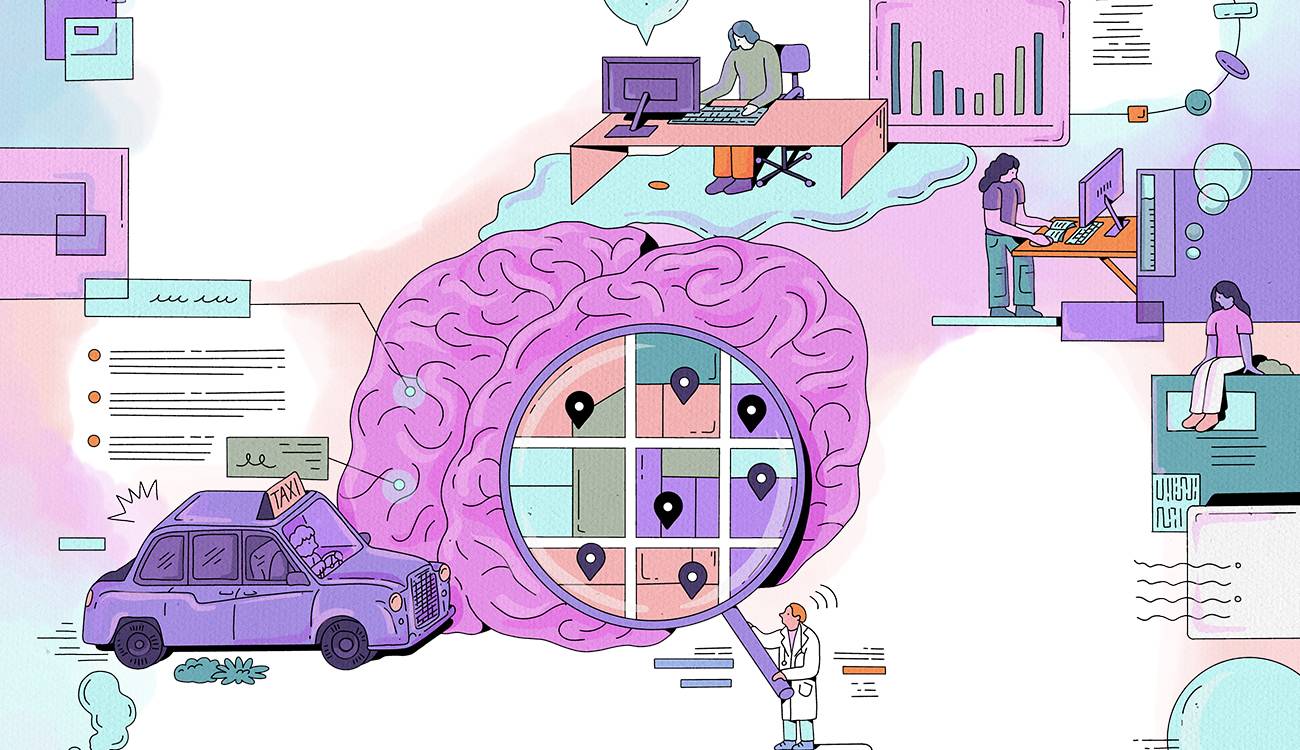
Judy Masterson joined RFU in 2014 after nearly 20 years as a newspaper reporter. She likes reading about artists and scientists and hiking with her kids and grandkids.
Author Page
Learning is good for the brain. It strengthens neural pathways, builds cognitive flexibility and boosts resilience. But it can also be stressful. It requires focus, struggle and sustained effort. Shortcuts, such as rote memorization, cramming and other bad study habits, can bypass genuine cognitive effort.
Lalima A. Hoq, MD ’97, also warns against using technology to cut corners. “You need to learn the long way, not the short way,” says Dr. Hoq, informatics physician for the Cedars-Sinai Medical Network in Los Angeles. “There needs to be that friction, and technology should help support that. Don’t use technology to get information so quickly that your brain doesn’t have it to draw from. You need to develop grit.”
When well-managed, the stress of learning can be a good thing. It means you’re challenging your brain, stepping out of your comfort zone — literally rethinking. “In medical school, you feel a lot of doubt,” Dr. Hoq says. “You need that because doubt drives curiosity, and that drives the pursuit of knowledge.”
Dr. Hoq cites the “London taxicab” brain study that shows drivers who have to memorize 25,000 streets and thousands of landmarks for navigation without GPS exhibit a measurably larger posterior hippocampus compared with control groups — evidence that the brain can structurally change in response to intense learning, which builds protective cognitive reserve.
A growth mindset can help relieve the stress of learning through a focus on progress, not perfection, and understanding that mistakes are opportunities to learn. “You’ve got to grow your connections,” says Dr. Hoq, who recalls medical school as “a rare and beautiful opportunity to always question and not be stressed to know all the answers.”